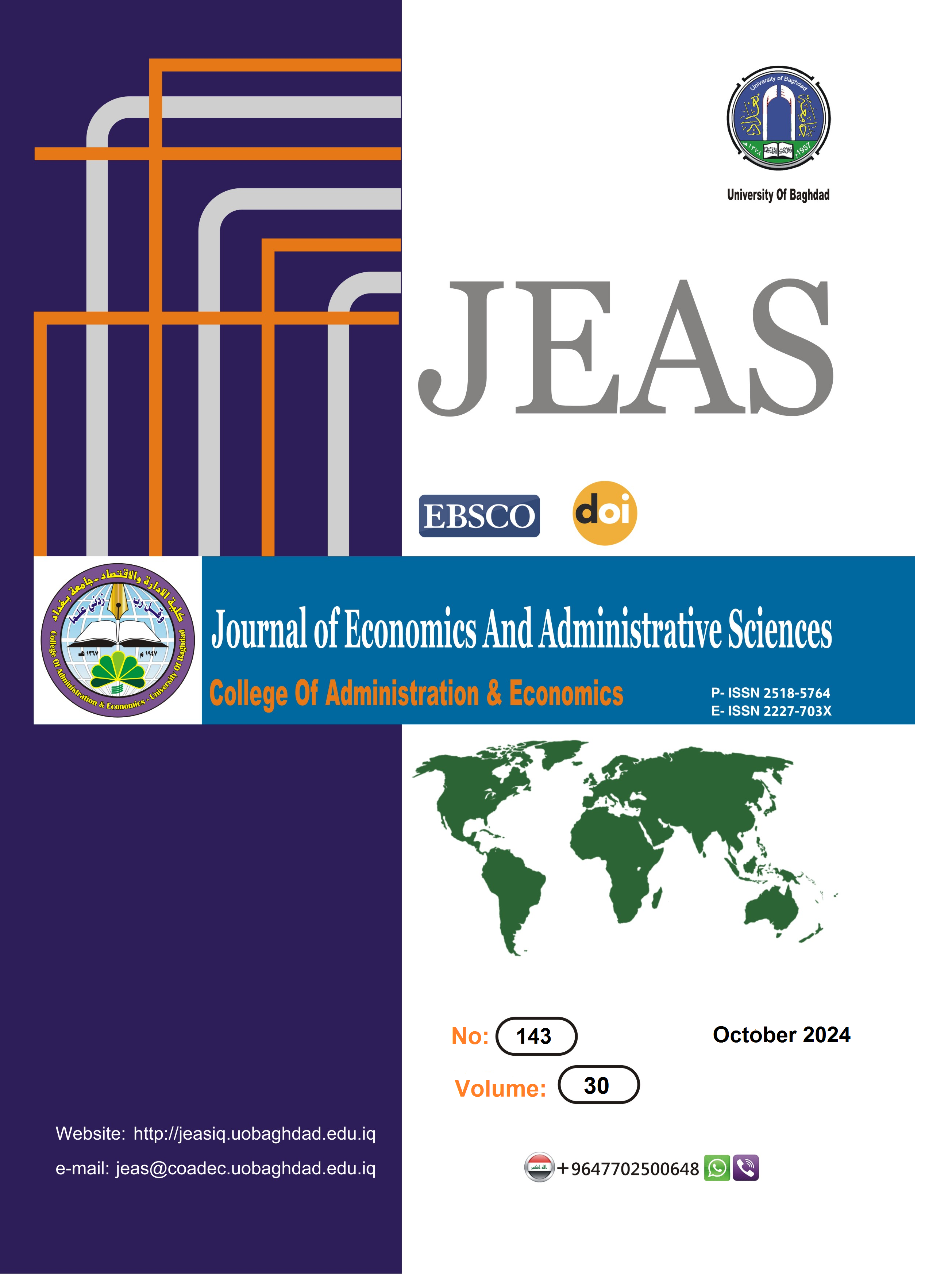Measurement and Analysis of the Relationship between General Revenues and Imbalance in Iraq's Export Structure For duration (2004-2021)
DOI:
https://doi.org/10.33095/ghj7qn74Keywords:
The Iraqi economy, Imbalance of the export structure , oil revenue .Abstract
The Iraqi economy relies primarily on oil exports to achieve necessary financial surpluses in order to finance economic and social development plans. Capital imports also contribute to improving the productive capacity of all sectors that directly or indirectly contribute to the country's economic growth if they actually exist. These imports, represented by the equipment and machinery necessary for building and developing infrastructure in Iraq, which cannot be provided except through foreign trade, make Iraq closely connected to broad economic relationships with most of the developed world economies. Oil revenues have had a positive impact on the general budget situation. However, on the other hand, the lack of a productive base has led to the leakage of revenues towards imports to meet domestic demand, resulting in an imbalance in the overall export structure. Moreover the research objective was to identify the relative importance of total exports in Iraq and how they are affected by oil revenues during the period 2004-2021. The hypothesis is fiscal policy has led to a disruption in the structure of Iraq's exports. And one of the most important result that appeared general revenues depend to a large extent on oil revenues compared to other revenues (non-oil), which means that the Iraqi economy is considered one-sided. With the weakness of revenues achieved from productive sectors (industry and agriculture) as well as weak tax revenues, this leads to an imbalance in the structure of the trade balance, evident through the dominance of oil exports over total exports in the country.
Paper type: Research paper.
Downloads
Published
Issue
Section
License
Copyright (c) 2024 Journal of Economics and Administrative Sciences

This work is licensed under a Creative Commons Attribution-NonCommercial-NoDerivatives 4.0 International License.
Articles submitted to the journal should not have been published before in their current or substantially similar form or be under consideration for publication with another journal. Please see JEAS originality guidelines for details. Use this in conjunction with the points below about references, before submission i.e. always attribute clearly using either indented text or quote marks as well as making use of the preferred Harvard style of formatting. Authors submitting articles for publication warrant that the work is not an infringement of any existing copyright and will indemnify the publisher against any breach of such warranty. For ease of dissemination and to ensure proper policing of use, papers and contributions become the legal copyright of the publisher unless otherwise agreed.
The editor may make use of Turtitin software for checking the originality of submissions received.

























